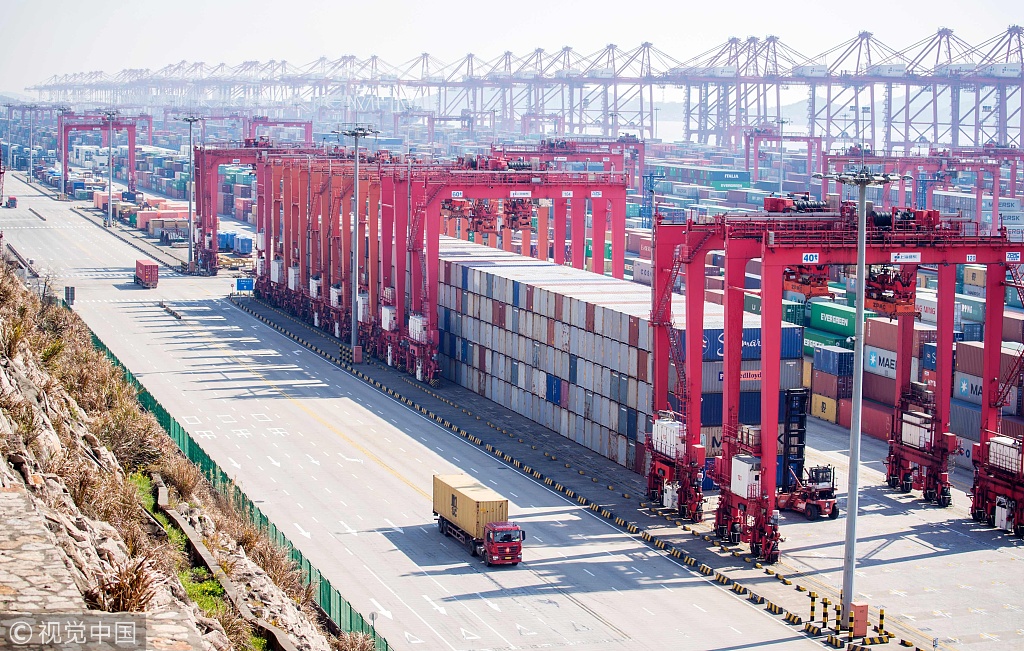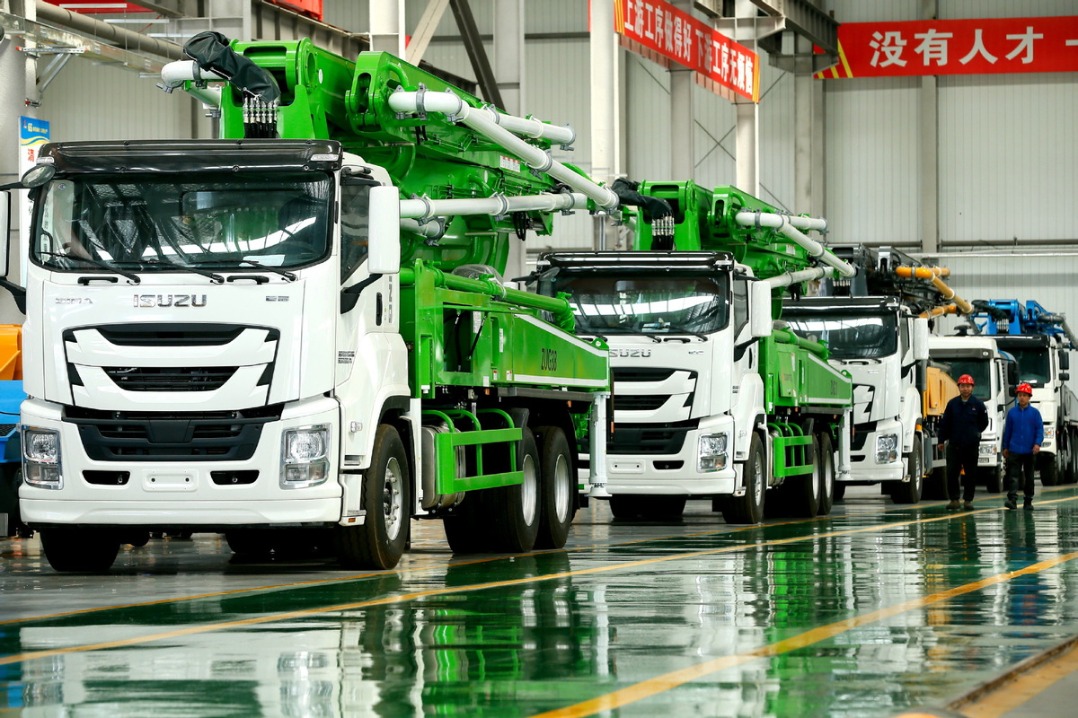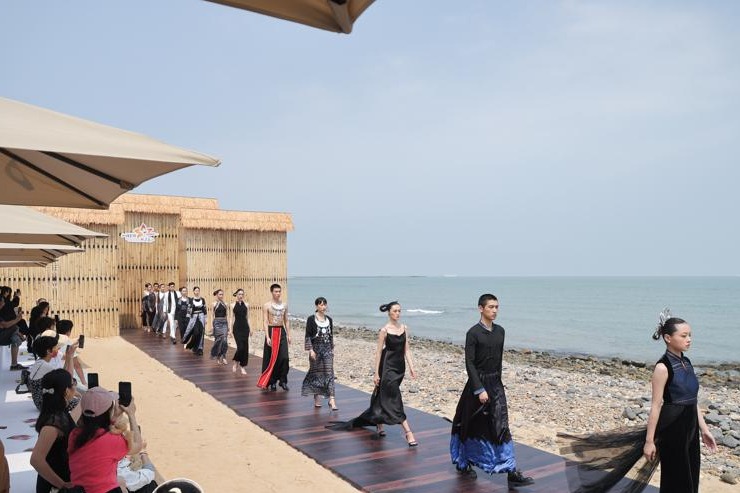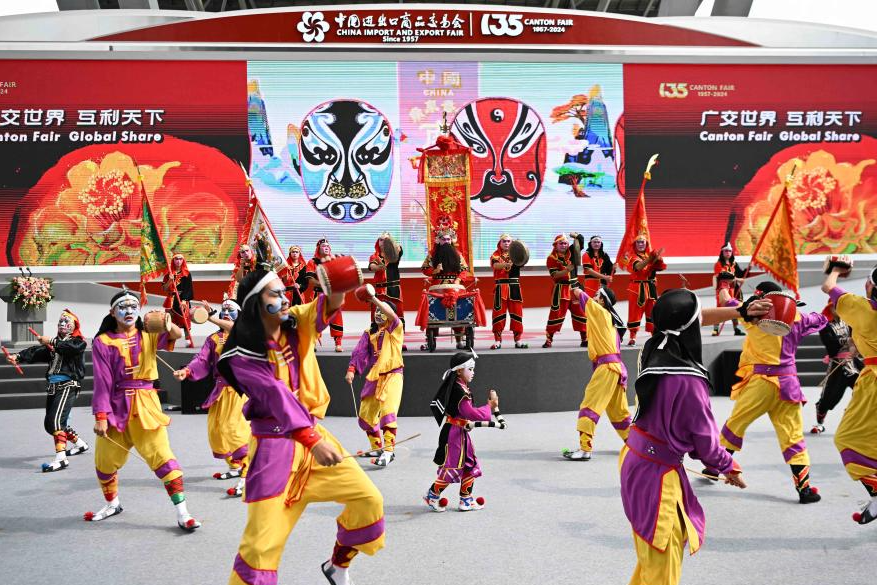Businesses plead to be spared by US tariffs threats


Some 50 US businesses, fearing tariffs on their imports from China, pleaded with officials on Monday to spare items they argued are critical to their businesses and consumer safety.
It was the first of seven days of hearings at the United States International Trade Commission on proposed tariffs on a broad list of products, which US executives say they have little choice but to buy from China.
Over 300 witnesses have signed up to voice their concerns about US President Donald Trump's threat to impose tariffs on another $300 billion in Chinese products, with levies of up to 25 percent, on top of the $250 billion worth already targeted.
Unlike previous tariffs that focus more on industrial and agricultural products, this round would target consumer goods.
The Trump administration wants to extend 25 percent tariffs to practically all Chinese imports not already hit with levies, including toys, car seats, household goods and sneakers.
Foreign Ministry spokesman Lu Kang said on Tuesday that practices have proved that trade differences between China and the US can be resolved through negotiation as long as it is based on mutual respect, equality and mutual benefit. "Any move that goes against such principles will never succeed," Lu said.
Lisa Trofe, managing director of the Juvenile Products Manufacturers Association, an industry group concerned with the quality and safety of baby and children's products, told officials that the increased costs from higher tariffs would render "lifesaving" child care products unaffordable to many people.
"We estimate 90 percent of the core products that keep babies safe are made in Asia, the vast majority in China, so a comparable US or other foreign manufacturing base no longer exists," Trofe said.
"Our message to American families should be clear: The importance of the trade war does not surpass the importance of baby safety," she said.
Bradley Mattarocci, vice-president of Baby Trend, a California-based maker of child safety products, said adjusting the supply chain to offset the effect of the proposed tariffs on the company's established suppliers would require significant changes.
"Those changes would be very costly, disruptive, take years in some cases and create untenable new safety and quality risks," he said. "They would also be impractical and, in some cases, not possible at all."
While the US trade representative's office has said product exclusions granted on prior categories will not be affected, some products, such as car seats and some other young children's products, are targeted again after having been spared from previous tariffs on $200 billion worth of Chinese goods imposed in September.
"The tariffs will drive prices up, which means sales (go) down," said Rick Helfenbein, president and CEO of the American Apparel & Footwear Association. "If sales go down, jobs are going to be lost. It is not good for the American economy," he told China Daily after his testimony.
Mark Schneider, CEO of Kenneth Cole Productions, said nearly 69 percent of all US-branded footwear is produced in China, and its supply chains cannot easily be shifted to other countries.
"It is not feasible that our production could be brought back to the US, since the infrastructure no longer exists, and the cost to produce our footwear domestically would be exponentially higher, resulting in shoes that would be unaffordable to our consumers," he said.
Asked about the likelihood of exempting some items, Douglas H. Paal, vice-president of the Asia Program at the Carnegie Endowment for International Peace, said it will be difficult to grant relief to some and not others now, but there may be a few exceptions for public safety.
If the latest tariffs go through, US shoppers will notice higher prices, said Gary Hufbauer, a senior fellow and trade expert at the Peterson Institute for International Economics in Washington. "Many medium-and low-income families will be unhappy. It remains to be seen what difference that will make in the 2020 elections," he said.
Zhang Jing and Zhou Jin contributed to this story.




































